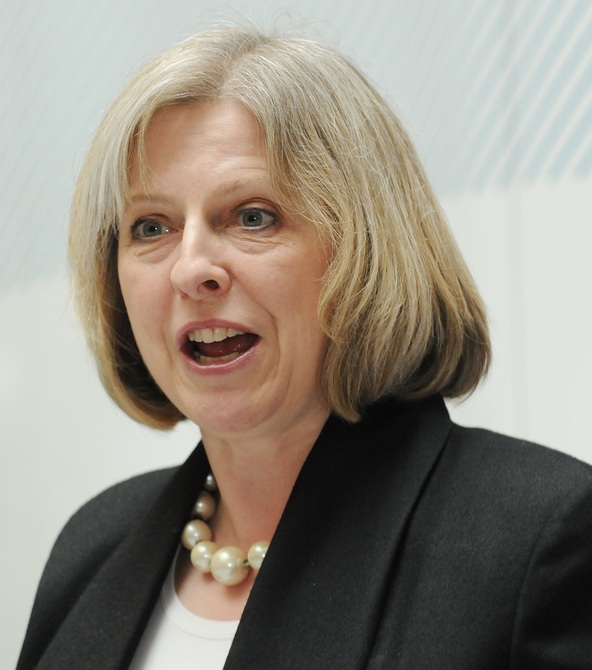by Georgia McKirgan
In her speech at the Conservative Party
Conference in October, Theresa May said:
"If you believe you’re a citizen of the
world, you’re a citizen of nowhere. You don’t understand what the very word ‘citizenship’
means.”
There are many things said by politicians that
I disagree with but Theresa May's comment really annoyed me. Her comment looked
like an attempt to tap into the prevailing anti-elite atmosphere and appeal to
Brexit voters by disparaging people that don't fit into a neat
ethno-nationalist box. To complete the picture, I was born in Hong Kong, have
New Zealand and Scottish parents, have been educated in England and spend about
a third of each year in North America. My objection is less about her
disparagement of people with mixed backgrounds than her assertion that such people
lack an understanding of the concept of citizenship. I would describe myself as
a "citizen of the world" and I challenge the assumption that this
means I have no cultural identity. As the world has become more
internationalised with more and more people living in countries other than
where they were born or having parents with mixed ethnic backgrounds, this is
going to become a bigger issue.
Even if her answer is wrong, the question
Theresa May raises is an interesting one. Can societies adapt to, and embrace a
significant number of people that come from a different ethnic/cultural
background and retain a sense of national identity? For a long time the USA was
the best example of how this can be done. Wave after wave of immigrants came in
to the country and they were eventually able to create an identity that was a
fusion between America and where they came from...Irish-American,
Polish-American, Asian-American, African-American, Scottish-American,
Italian-American etc. Despite this plethora of cultural identities, they would
fervently embrace this patchwork quilt-identity called America. Sadly, it looks
like the victory of Trump is a violent 'white-lash" against this phenomenally
successful multi-racial experiment.
If America is struggling to come to terms with
the consequences of being a multi-ethnic, multi-racial country, where else can
we look for examples?
New Zealand.
Like many Commonwealth countries, New Zealand
is made up of a native (Maori) community and a larger settler community that is
predominantly white and European. New Zealand has managed to create a national
identity that is a blend of all of these backgrounds. If you ask any New Zealander
what it is to be a Kiwi, the answers display a sense of identity that is truly
inclusive of all the different groups in the country. In no way is it an ethnic
or racial idea. This inclusive concept of national identity has now been
expanded to include a growing number of Pacific Islanders and Asian-New
Zealanders.
An example of this is even white New
Zealanders like my Mum and her family view the Haka and other Maori rituals as
a central part of what they see as their New Zealand identity. When New
Zealanders learn the New Zealand National Anthem, they learn the Maori version
as well as the English one. I'm not saying it is perfect (there are still legal
battles about land rights dating back to the Treaty of Waitangi) but New
Zealand is the best example I have found of a country building an inclusive
national identity based on the culture and histories of all of their people and
it proves that it can be done.
Without realising it, Theresa May has opened a
Pandora's box. By suggesting that people who view themselves as 'citizens of
the world' are not truly British, it begs the question of what 'being British'
actually means. This is a question Britain has been struggling with since the
decline of the British Empire and the fact that flying the Union Flag still has
UKIP-ey, far-right connotations shows that we are not there yet. In large parts
of the UK, like Scotland, the sense of
Britishness is disappearing fast but to me, Britishness is more about values
than race or ethnicity. Earlier I talked about my own background. Theresa May
would say that my background means I don't understand the concept of
'citizenship'. I feel I have a very strong sense of identity, it's just that
that identity has a number of different cultural roots. What is it about
citizenship that I don't understand? British values? British history? British
culture? My suspicion is that whether she realises it or not, her comments
legitimise some of the unsavoury racist feelings that were displayed during and
after the EU Referendum. The fear of 'the other' and the suspicion of
'outsiders'.
As Prime Minister, Theresa May should be
leading the discussion about what it means to be 'British' or 'English'. At the
moment, the type of rhetoric displayed at the Conservative Party Conference
fills me with dread. Despite Brexit and Trump I don't believe we can (nor
should) turn back the clock to a world where all countries were culturally and
ethnically homogenous. Apart from being impossible, I think we all benefit from
being exposed to different ideas and cultures. The challenge is to be able to
embrace these differences within a cohesive national identity.

Comments
Post a Comment
Comments with names are more likely to be published.